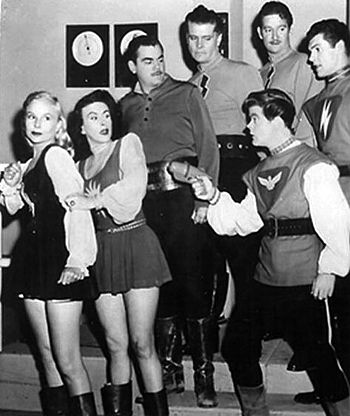Daily caveat – if I haven’t made this abundantly clear already, my writing a thousand words a day so far has been a fluke. A happy, magical fluke that should rightly be sending all of the other fluke people scurrying, but not something I can count on every day this year. Or month. Or even week, knowing my luck for precipitous outcomes following bold announcements.
Last year, I asked a lot of writerly types how much they wrote on a given day-to-day. The sweet spot for most of the respondents fell into two tiers – those that hit around 2k a day (largely, if not exclusively, all “full-time” writers, ie, no other day jobs), and those that hit around 1000-1200 words a day. So I’m in good company in that regards – but that’s not what’s been making getting to 1k so compelling.
It’s all about scene lengths for me. More specifically, my scenes (at least in the first draft or two) tend to run between 800-1200 words. There are outliers in either direction, but that’s the Goldilocks zone for me writing a scene. When I aim to write 1k, what I tend to be saying is that “I am going to write the first draft of a full scene.” Since a scene is self-contained, I rarely have to worry about picking up in mid-thought from the day before. Instead, I give yesterday’s text a cursory read through, usually just the last hundred words or so to orient myself, and then begin the next scene.

You might wonder how well this fits into the pantser mentality, and I’ll tell you – so far, it’s been perfect. When I sit down to write a scene, what I have in my head usually is the next installment in a serial adventure. While I have a general picture of how everything in a novel project will go down before I start writing the first word (subject to change over time), when I sit down to actually write a scene it’s more like I’m watching a new episode of a long running serial. Will Atomic Man make it out this time? Or will Doctor Rocket win at last? Tune in and find out! And that’s when my fingers hit the keyboard, describing what I see, relaying the dialog, emotion, and visceral of a scene until 30, 40 minutes later I have a thousand or so words and another notch in the book filled. Sometimes I’m surprised by what twists or turns a scene ends up taking, just as much as I’m awed that my subconscious will pull out something I intended as a throw away comment six chapters ago and transform it into the sacred key to unlocking the current crisis. I dont’ have to go back and pepper foreshadowing, because my brain does it for me. (Good brain. Happy brain.)
Which brings me around to why I’ve been able to make that thousand words. Barring exhaustion (which creeps in the later in the day I get started on my words) and work (which is just a creep, always sitting in my favorite chair and eating my cheese puffs), if all things are equal and the batteries are charged, dashing off a thousand words is easy because I am compelled not to leave a scene unfinished. With one roughly equalling the other and vice versa, it behooves me to write a full scene in a sitting, which in turn means I should make my 1k goal.
So if you’re looking to make some amazingly consistent numbers (whatever number that happens to be), my advice would be to take a look at your writing style as one possible vector. What size chunks do you write in? What size chunks do you find yourself creating? Don’t bend yourself around a wild goal if you can avoid it – this may last for a few days, but when you fall short, you’ll regret it. It really is worth it to step back and look at your writing habits, and how much you can reasonably produce in the time you have allotted, and go from there.
Related articles
- How to Write 10,000 Words in a Day (sprintshack.wordpress.com)
- Notebook Shenanigans (writershenanigans.wordpress.com)
- Write 80k in 8 days Update (pepperwinters.wordpress.com)

